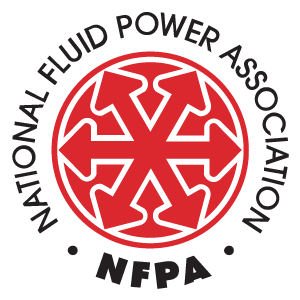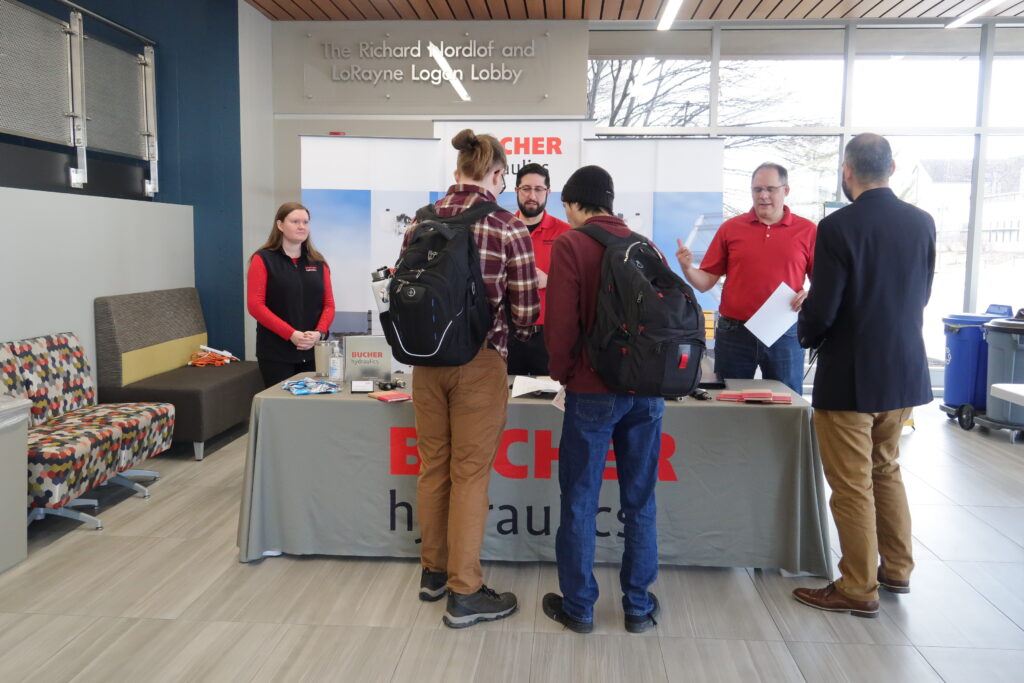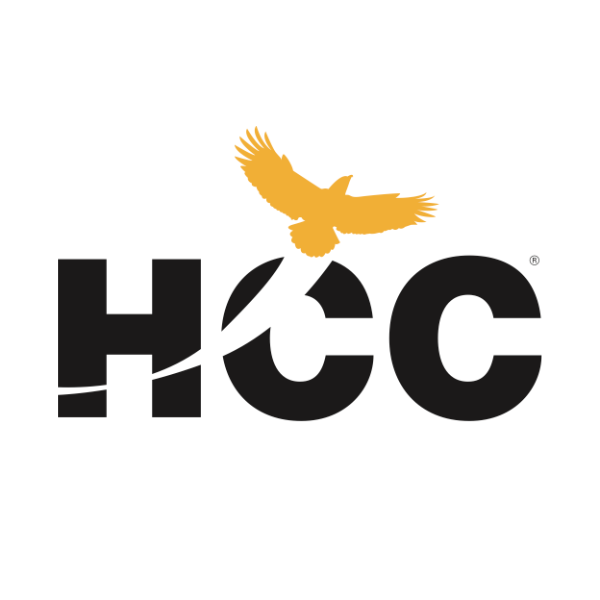By Eric Lanke
NFPA President/CEO
In pursuing our mission of strengthening the fluid power industry, NFPA is focused on four key strategic objectives. Here’s a quick summary of the ways NFPA members can benefit from the programs associated with the fourth of those objectives. We call that objective Educated Workforce, and it’s where NFPA helps increase the number of university students educated in fluid power and connects them to careers in the fluid power industry.
To achieve this goal, we are building a faculty engagement pathway to bring undergraduate students into our industry. Truth be told, there are plenty of engineering students in our nation’s universities. The problem is not enough of them are being taught fluid power. So, to create more educated fluid power engineers, the NFPA and the NFPA Foundation conduct a number of research and education programs designed to better engage academic faculty in the teaching of fluid power.
Technology Roadmap
Engaging that faculty begins with our Technology Roadmap Committee, which defines the areas of pre-competitive research needed to increase fluid power’s competitive position in the marketplace. With the latest update to the Roadmap, there are now eight broad areas of focus:
- Improving fluid power control systems;
- Using data generated from working fluid power products;
- Providing greater fluid power expertise;
- Improving fluid power’s reliability and durability;
- Increasing fluid power’s energy efficiency;
- Increasing fluid power’s power density;
- Reducing the environmental impact of fluid power components and systems; and
- Reducing lead time for fluid power components and their control elements.
Our academic partners use these needs to select and guide specific research projects in their community, getting more faculty members and promising graduate students to investigate what we have said are the pre-competitive needs of our industry.
To learn more and download the latest Roadmap, visit: https://www.nfpa.com/home/workforce/Fluid-Power-Industry-Roadmap.htm
Fluid Power Research Programs
Over the years, NFPA and the NFPA Foundation have provided funding for fluid power research projects on these topics at many of these universities. And thanks to the new $5 million a year fluid power research program at the U.S. Department of Energy, those universities and several national laboratories are actively participating in this growing research community.
To help keep these researchers and their projects connected to our industry, our Foundation provided $10,000 research supplements to eleven principal investigators this year in order to ensure that they and their graduate students can attend and present their research at industry-designated conferences. Three of them – all funded by the new DOE program to improve the efficiency of fluid power systems in off-highway vehicles – in fact, presented their research at a special symposium held at IFPE 2020.
It is through these activities that the NFPA Foundation is helping to build the careers of university faculty, who are and who will be in a position to teach fluid power to thousands of undergraduate engineers on their campuses.
To better connect with fluid power’s growing research community, visit: https://www.ccefp.org/
Fluid Power Curriculum Tree
Right now, thanks to years of funding various teaching, laboratory and curriculum grants, we are in a position to offer these faculty a full fluid power curriculum for insertion into their core engineering courses. Thanks also to the efforts of our University Education Committee, we’ve now defined the nine fluid power competencies that our member companies are most looking for in entry-level engineers coming out of our nation’s universities. Using these competencies as our guide, we have sorted all our curriculum products and placed them online in a curriculum tree. This is providing university faculty who wish to add fluid power to one or more of their undergraduate engineering courses with a quick reference, not only for which competencies industry believe belong in their curriculum, but with the downloadable teaching products that will allow them to quickly and easily incorporate them.
To review our curriculum tree, visit: https://www.nfpa.com/home/workforce/Engineer-Pathway/Fluid-Power-Curricula.htm
Fluid Power University Grants
To help make this happen, we’ve renewed our practice of offering education grants to university professors who wish to develop or improve the level of fluid power education they’re offering to undergraduate students. Teaching grants, laboratory grants, curriculum grants – this effort has gone by various names over the years, but the intent has always been the same: increase the amount of fluid power being taught in our nation’s universities. In our history, we have given 42 of these grants to 34 schools in 16 states – including this year’s recipients at Murray State University, Purdue University Northwest, and the University of Kentucky at Lexington. Thanks to these efforts, many of these schools have added a critical hands-on component to their growing platforms of fluid power instruction.
Fluid Power Vehicle Challenge
Speaking of hands-on fluid power instruction, I’m proud to say that this year NFPA will be conducting our fourth Fluid Power Vehicle Challenge (albeit virtually because of the impact of the coronavirus). This is a unique engineering design/build competition that embeds in the capstone design course at participating universities. It strives to teach the practical use of fluid power components and systems, while promoting original thinking in a competitive setting by combining two technology platforms that are not normally associated with one another—human-powered vehicles and fluid power. Our industry donors form a support community around this program – serving as mentors, coaches, judges, and event hosts, getting a first and important opportunity to meet these students and recruit them into their organizations.
To learn more and get involved in the Fluid Power Vehicle Challenge, visit: https://nfpahub.com/fpc/vehicle-challenge/
Fluid Power Clubs
And now that community is expanding even further. With NFPA’s help and support, many of the universities that participate in the Vehicle Challenge are establishing Fluid Power Clubs on their campuses – both to engage younger students in the work that surrounds the Vehicle Challenge team, and to expose a greater number of students to fluid power education and career possibilities. With the help of these clubs – now at nine universities – we are organizing fluid power study groups and social events, launching student job fairs and resume building workshops, and inviting industry professionals to speak with them about career opportunities in fluid power.
For more information, visit: https://www.nfpa.com/home/workforce/Fluid-Power-Club2.htm
Interested in Getting Involved?
As you can see, these programs demonstrate the ways NFPA fulfills its commitment to increasing the number of university students educated in fluid power and connecting them to careers in the fluid power industry. If you or a representative from your company would like to get engaged in any of these opportunities, please contact me at elanke@nfpa.com or (414) 778-3351.
Like this post? Share it!
Recent Posts
Fall 2024 Fluid Power Recruitment Event with NIU
RSVP for our Fall 2024 Fluid Power Recruitment Event with Northern Illinois University (NIU). NIU is one of seven universities recognized as a Power Partner, teaching fluid power competencies and engaging in all NFPA educational programs. At this event, your company will have the opportunity to connect directly with NIU engineering students. Engaging in meaningful conversations,…
Now Announcing: Cuyahoga Community College as a Fast Track Hub in Ohio
NFPA’s Fast Track to Fluid Power is a workforce development pathway that partners local technical colleges with fluid power industry members and high school teachers. These networks create awareness and interest in fluid power and train students along a path that leads to careers in fluid power at NFPA member companies. We are pleased to…
Now Announcing: Houston Community College as a Fast Track Hub in Texas
NFPA’s Fast Track to Fluid Power is a workforce development pathway that partners local technical colleges with fluid power industry members and high school teachers. These networks create awareness and interest in fluid power and train students along a path that leads to careers in fluid power at NFPA member companies. We are pleased to…




